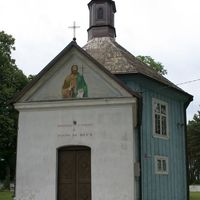Eagle
6.69

Overview
Orla is a rural commune located in the Podlaskie Voivodeship, within Bielsk County, with its administrative seat in the village of Orla. Established after World War I, the commune has a rich history dating back at least to the early 20th century. According to the First National Census of 1921, the commune consisted of 48 villages and settlements, inhabited by 7,824 people, the majority of whom declared Belarusian nationality. In addition to Belarusians, the area was also home to significant numbers of Poles, Jews, and Ruthenians, reflecting the region's multicultural character.
After World War II, Orla underwent administrative changes and from 1975 to 1998, it belonged to the Białystok Voivodeship. In 2009, Belarusian was introduced as an auxiliary language, underscoring the area's cultural diversity and efforts to preserve local traditions.
Agriculturally, farmland dominates the commune, covering 80% of its area, which supports the development of agriculture, while forests account for 12%. In 2012, the Swedspan wood-based panel factory was established in Koszki, marking a significant foreign investment in the region.
Architecturally, Orla and its surroundings have preserved many traditional wooden buildings that reflect local styles and settlement history. The area is also notable for its rich religious life, with the Orthodox Church playing a dominant role, as evidenced by the numerous churches.
The commune borders other municipalities, such as Bielsk Podlaski and Boćki, facilitating cultural exchange and inter-community cooperation. In 2004, Orla had a population of 3,485, and by 2014, demographic data showed a diverse age structure, which is important for local community planning.
Orla is a place that blends tradition with modernity, preserving its local cultural heritage while attracting investment and fostering development.
Location
2026 Wizytor | All Rights Reserved

